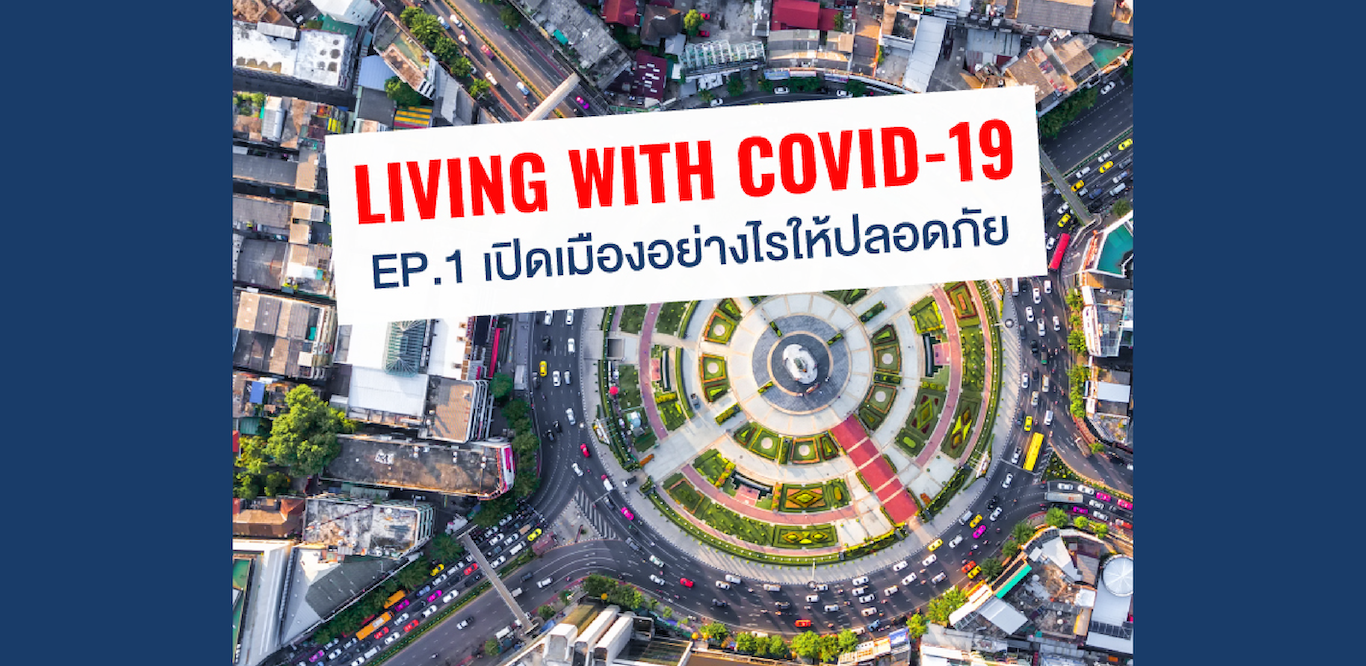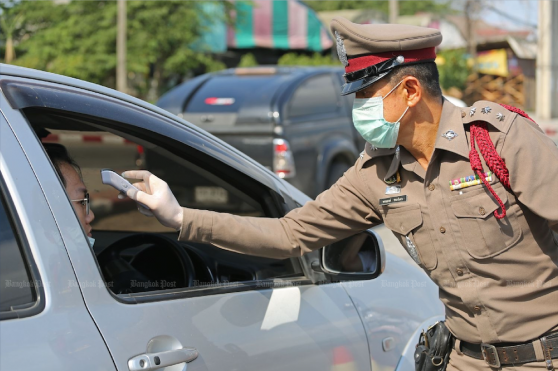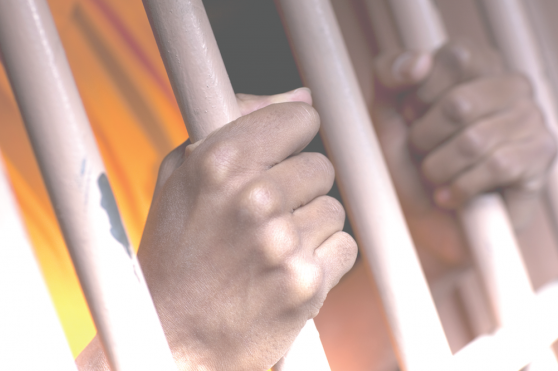TIJ hosted an idea-sharing Virtual Forum with Health Economist on "How to ease city lockdown safely", community-level information sharing and behavioral co-designing during the time of COVID-19
"How to ease city lockdown safely?" is an essential topic of discussion following the COVID-19 outbreak in Thailand. The issue has always been how to strike a balance between effectively containing the viral spread and solving economic problems.
Thailand Institute of Justice (TIJ) hosted a virtual conference through Zoom application on the topic of "Living with COVID-19: How to ease city lockdown safely" through Rules of Law Development network or RoLD. The conference attended by over 100 executives from both the private and public sectors on the 25th of April 2020.
Prof. Dr. Kittipong Kittayarak, Executive Director, TIJ, opened the conference by mentioning the situation in Thailand and the measures required to allow people to lead lives amidst the outbreak of COVID-19 or what is now called the "New Normal". Three priority areas being: 1. Behavioral study and design of individuals adapting to living with COVID-19 for the foreseeable future, 2. The establishment of a robust community-level self-screening system which eases the burden for hospitals and 3. The availability of a modern tracking system that allows individuals to keep tabs on their risk level, similar to how doctors locate the people at risk. If all three areas can be implemented, the lockdown could be lifted safely.
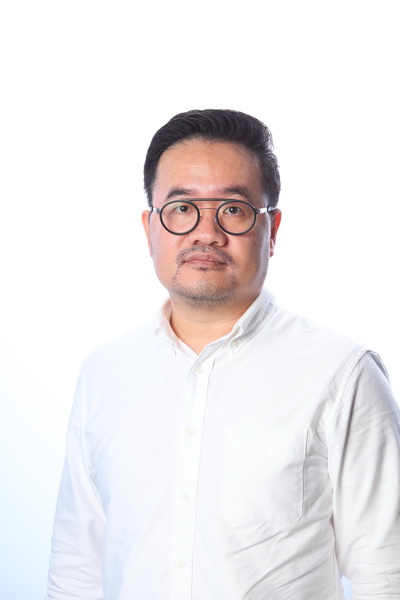 Assist. Prof. Dr Thanee Chaiwat, Director of Center for Behavioral and Experimental Economics (CBEE), Chulalongkorn University, presented a study on "Behavioral Insights of Thai Households in COVID-19 Situation" conducted by the Faculty of Economics, Chulalongkorn University. A survey was conducted with the same groups of people from 18 provinces during three intervals: 5-9 April 2020, 18-19 April 2020, and 22-24 April 2020. It found that the majority of the people fully cooperated with multiple measures imposed after the state of emergency was declared. However, after two weeks, the sample population in all surveyed areas evidently relaxed their cooperation. This stage is called "behavioral fatigue," and approximately 80 per cent of the people from 18 provinces expect the government to relax the lockdown measures since the 1st of May. Thus, to respond to such anticipation, the government will have to relax or lift the lockdown measures in certain areas and justify its decisions whether or not to unlock such areas.
Assist. Prof. Dr Thanee Chaiwat, Director of Center for Behavioral and Experimental Economics (CBEE), Chulalongkorn University, presented a study on "Behavioral Insights of Thai Households in COVID-19 Situation" conducted by the Faculty of Economics, Chulalongkorn University. A survey was conducted with the same groups of people from 18 provinces during three intervals: 5-9 April 2020, 18-19 April 2020, and 22-24 April 2020. It found that the majority of the people fully cooperated with multiple measures imposed after the state of emergency was declared. However, after two weeks, the sample population in all surveyed areas evidently relaxed their cooperation. This stage is called "behavioral fatigue," and approximately 80 per cent of the people from 18 provinces expect the government to relax the lockdown measures since the 1st of May. Thus, to respond to such anticipation, the government will have to relax or lift the lockdown measures in certain areas and justify its decisions whether or not to unlock such areas.
The study indicates that the majority of the people follows the news for the national overview and are equally informed across all surveyed areas. However, they lack the awareness of their local information. For example, they can provide numbers of the overall confirmed cases and fatalities but not in their specific provinces. This led to the people's expectation that the ease of city lockdown can be implemented equally across all areas since they do not have insights as to the area-focused sensitivity. This study also found that "economic factors of each individual strongly associated with their cooperation with public health measures". It also found that low-income people are more willing to take the risk of infection and ready to relocate to where the lockdown is lifted first. On the contrary, this means that if the government can implement effective financial remedial measures, it can reduce cross-country migration and, hence, curb the spread.
"From this study, we can see that low-income people are more willing to take the risk of infection. When further asked about what they would do if lockdown is partially lifted, almost all of the low-income group are ready to relocate to work in the unlocked provinces. Unless they work, they cannot generate income, and they would rather risk the infection rather than starve. When asked whether the 5,000-Baht remedy is adequate, they provided that the remedy of 5,000 to 10,000 baht is sufficient. This reflects that 5,000-Baht remedy is an important factor to prevent cross-country relocation. Therefore, the financial remedy being distributed combined with public health measures can help prevent the spread. The question, however, is that if lockdown is lifted in some provinces, will there still be the 5,000-Baht remedy? Combination of good public health and financial measures can prevent the spread of the virus."
The study classified the populations into four groups: urban people, urban poor, rural people, and people in the southern border provinces. It found that all groups have similar knowledge on the overall situation and possess much the same attitude towards cooperation with the measures. However, they have "different restrictions of cooperation" especially the urban poor. The group is restricted from living in the same household while maintaining social distancing rule since there are more members than the number of bedrooms. They also have the lowest average number of bathrooms per household. While the southern border group has the highest number of members per household, but they have a higher number of bedrooms compared to the urban poor and rural people.
This study proposed that a survey on the people's preparedness is required to evaluate the readiness of relaxation in each area. To safely ease the lockdown, three measures are needed: 1. Rapid medical referral and close contact quarantine required if an infected person found; 2. State and local quarantine facilities are required for the separation of the at-risk group from the community; and 3. A communication process is required to build social understanding for the infected person and prevent stigmatization.
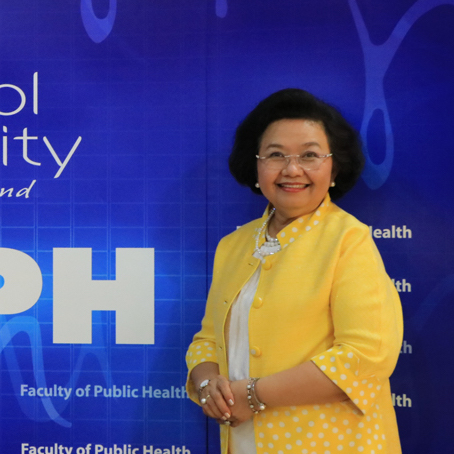 Assoc. Prof. Chanuantong Tanasugarn, Dean of Faculty of Public Health, Mahidol University, presented that Thailand has a strong public health system down to a household level which is the Public Health Volunteers. Also, there is the "Charter on the National Health System" which can be referred to by communities as a master plan for the development of local policies or ground rules in the community level.
Assoc. Prof. Chanuantong Tanasugarn, Dean of Faculty of Public Health, Mahidol University, presented that Thailand has a strong public health system down to a household level which is the Public Health Volunteers. Also, there is the "Charter on the National Health System" which can be referred to by communities as a master plan for the development of local policies or ground rules in the community level.
If the lockdown is to be lifted, Assoc. Prof. Chanuantong proposed that the "capital" of the robust public health mechanisms shall be exploited. This is by putting together "Human and Social Capital" being the civil sector network and the "Intellectual Capital" from the local expert and other know-how. However, the issue to consider is that the majority of the people currently receive only the figures of confirmed cases and fatalities which is single-dimensional information. This does not enable them to analyze the data to implement their mutually agreed ground rules. They need access to comprehensive and multi-dimensional information on COVID-19 to develop their community health charter and set out better community rules.
"Provincial and national level committees have to consider this. The community should take part in decision-making. For example, if the lockdown is lifted, what would be the procedures and management a hairdresser has to follow? If they have information about their community, they can be part of the decision-making process. We want to see how will schools be transformed. Schools are now focusing only on online teaching, but we want to see how schools will manage their bathrooms, their line ups and how they will adapt?"
Another critical subject regarding lifting lockdown is the utilization of technology to manage and control the spread of COVID-19. Mr Somphote Ahunai, Chief Executive Officer of Energy Absolute Public Company Limited and one of the developers of "Mor Chana" application, provided that the application is recommended because it directly affects four target groups as follows:
The first group is the patients. When a patient visits the hospital for treatment, the application can examine the list of places visited and activities.
The second group is the medical personnel. The information of the patient from the application offers safety and reduces infection risk for medical staff from the patient's non-disclosure or failure to remember the information. The application also allows the medical personnel to contact persons under investigation (PUI) without requiring any physical contact, thus increasing the safety of the medical personnel.
The third group is society. The application provides more accurate information system since the application can specify person(s) with exposure, the risk level and how to behave when at risk. It will also help shops and private offices screen and admit only risk-free persons into the office or shops without having to close the shops.
The fourth group is the government. Information for rapid containment and management of the spread will be provided.
Regarding concerns about access to personal information which may induce freedom violation, the co-developer emphasized that "Mor Chana" application collects information of individual users on a "No-name basis" and only circulate information on visited locations. The central system cannot identify the owner of the information and will process only when one person is found infected.
"The first group to know who are the application user is the hospital and the Department of Disease Control. The initial information will only be disclosed to the hospital when the patient registers for treatment there. When the Department of Disease Control evaluates that the user is at risk or maybe infected, the information will be transferred back to the system, which will then designate that user as a patient. Then, by using GPS and Bluetooth technologies, the system will process the information from the past 15 days to identify travel history and persons with close contact to the patient so that they can separate themselves and enter a 14-day quarantine. The QR Code is classified into four levels being green, yellow, orange and red, each accompanied by recommended behaviors according to the color. Since this is a real-time system, information of the infected person or at-risk person will also affect persons with close contact, and their QR Code will change color. When the user notices the change in color, he/she will then have to behave differently."
Mr. Somphot assures that data protection is the application's priority. Only the travel history information and one profile picture will be collected and disclosed only when the patient comes to receive treatment at the hospital. The central information will be sent to and stored at AWS of Amazon which is a platform with world-class security. Digital Government Development Agency (Public Organization) or DGA will be the keeper of the information through a three-party encryption by the government, developers and a third party now being invited to inspect method of information storage. Therefore, disclosure of information will have to be approved by all three parties at the same time. The data will remain valid only for 30 days and will be deleted immediately after that.
The developers of "Mor Chana" admit that the system in use still needs further improvement before it can be publicly reliance and function. For the application to efficiently operate, there needs to be a significant number of users and the connectedness of the information. Therefore, in addition to working with the Department of Disease Control, gaining trust from society is another urgent matter.
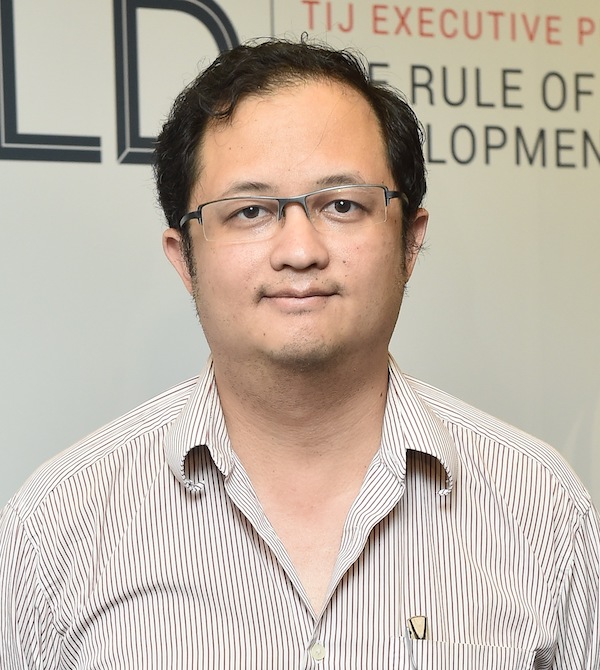 Mr Sunit Shrestha, managing director of Change Fusion Institute, raised an example of South Korea where there have not been many difficulties tracking the spread of the virus. This is because South Korea has experiences in the time of Middle East Respiratory Syndrome (MERS) outbreak. Since then, crisis information management legislation was enacted. This allows the government to access information of the people upon certain conditions and subject to review by relevant committees.
Mr Sunit Shrestha, managing director of Change Fusion Institute, raised an example of South Korea where there have not been many difficulties tracking the spread of the virus. This is because South Korea has experiences in the time of Middle East Respiratory Syndrome (MERS) outbreak. Since then, crisis information management legislation was enacted. This allows the government to access information of the people upon certain conditions and subject to review by relevant committees.
Mr Sunit provided that, Korea Centers for Disease Control and Prevention discloses information publicly as Open Data indicating the locations to which the infected persons had travelled and how. Every time information arises, the government sends an alert to notify the people of the at-risk area so that they can avoid the areas. It also helps inform the people who were in the area and alert them to get tests. After some time, the risk level will decrease. This is considered disclosure of information based on the principle of transparency whereby information will be fully disclosed as long as it does not violate privacy.
Moreover, Mr Sunit and his team developed "Sabaidee Bot" application to reduce the impact of COVID-19 within Thailand society. The application is a Line ChatBot which allows the people to record their health status and to check whether they have any symptoms similar to COVID-19. After the input, advice on how to behave will be automatically provided. Mr Sunit emphasized that the objective of the application is to enable people to self-check and remain up to date on theirs and the communities' health status, offer access to information on how problems are being addressed in each area, reduce the risk of being misinformed. Additionally, the application facilitates access to essential resources, areas that require funding or other essentials for their well-being.
On the issue of shortages of equipment within communities or hospitals, a website named infoaid.org was introduced to collect information from communities with public benefit organization about the required essentials, amount, area and the focal point. This allows donations to be made directly to those in need. If any organization establishes a fund-raising project, they can go to taejai.com for that purpose as well. It is another way technology can offer help to the community.



